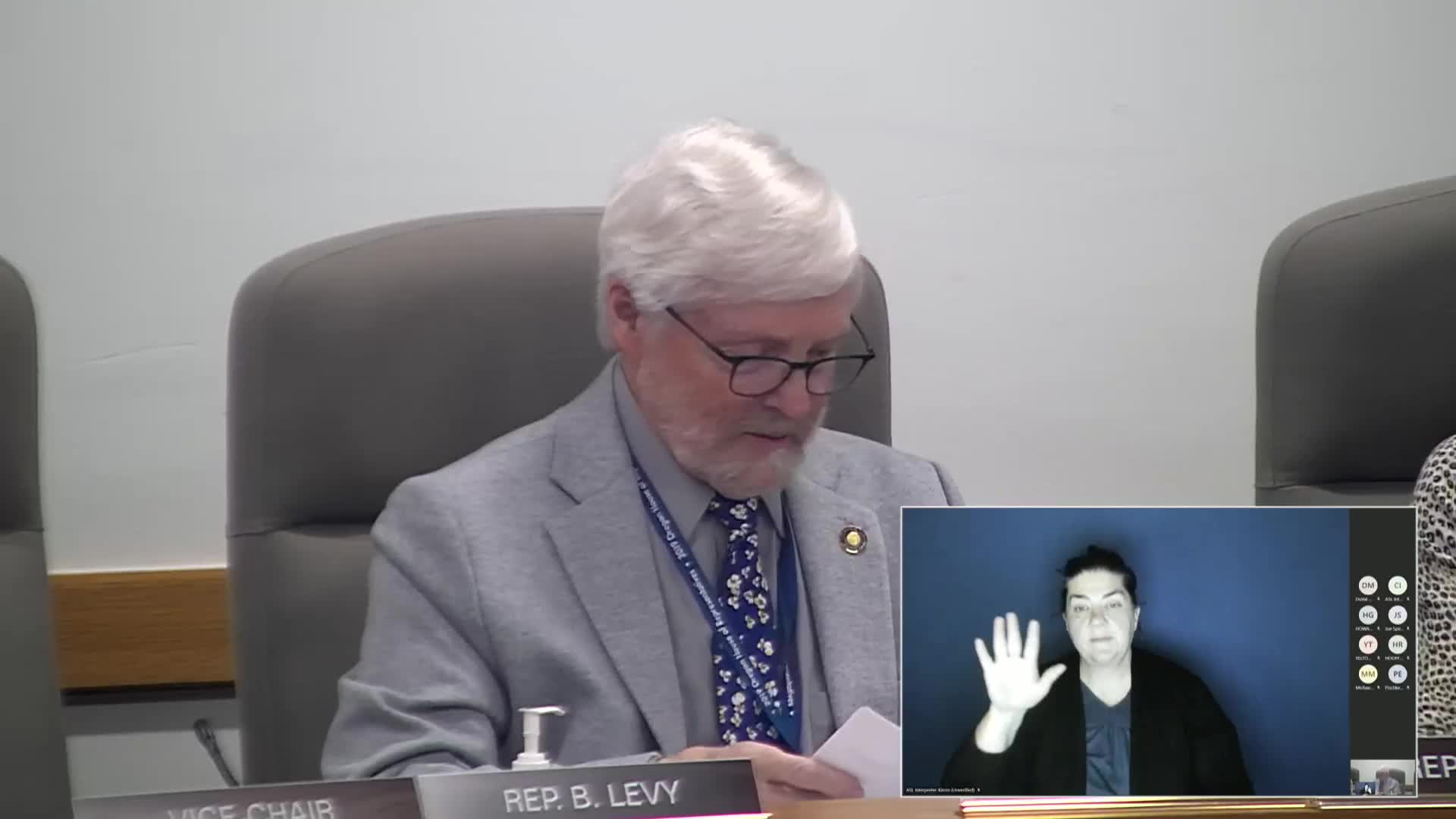Small cities push for lagoon‑specific operator certification as DEQ, test provider revise exams
Get AI-powered insights, summaries, and transcripts
Subscribe
Summary
Representative Ed Deal and municipal officials told the House Climate, Energy and Environment Committee on March 18 that existing wastewater operator exams are weighted toward mechanical plants and create a barrier for lagoon system operators; HB 3655 would direct the Department of Environmental Quality to develop a lagoon‑specific certification program.
Representative Ed Deal and a coalition of small cities urged the House Climate, Energy and Environment Committee on March 18 to pass House Bill 3655, a proposal to require the Oregon Department of Environmental Quality to develop an examination and certification program tailored to operators of lagoon wastewater treatment systems.
In testimony, lawmakers and municipal officials described a workforce bottleneck: small cities that operate lagoon systems face difficulty hiring and retaining operators because the state certification test is heavily weighted toward mechanical wastewater plants and contains questions unrelated to lagoon operation. Witnesses said low pass rates force cities to spend more on training, retain third‑party supervision while operators retrain, and absorb the operational costs of failed tests.
Representative Ed Deal (House District 17) said about 50 lagoon treatment facilities exist statewide and argued a targeted exam for lagoon systems is feasible and would reduce costs and turnover in small rural cities. Members of the Small Municipalities Advocacy Coalition (SMAC) reinforced that most Oregon cities are small — 241 cities in the state, 87% with fewer than 20,000 residents — and said lagoon systems are a distinct technology commonly used by those towns.
City officials and operators gave examples: Ginger Allen, city manager of Scio (population about 954), described repeatedly training employees who later leave for larger jurisdictions; Brianna Parokowski, city administrator of Halsey (population about 951), said her city doubled training budgets because of expected test failures; Michelle Eldridge of Harrisburg described the direct responsible charge (DRC) cost small cities pay — $500 to $1,500 per month — when they lack certified staff; and Kostani Konarowski, a seven‑year municipal operator, said he failed the test twice despite strong on‑the‑job performance.
Witnesses cited three recurring concerns: the content of the test question bank (many questions reflect mechanical plant equipment not used in lagoon systems), the experience requirement (cities said 1 year of on‑the‑job experience is more appropriate than an 1,800‑hour rule), and the cost of repeated testing (tests cost roughly $250–$332 each). Several municipal witnesses asked DEQ to permit credit for one year of calendar experience because lagoon operators must work through all four seasons to gain necessary skills.
DEQ staff, including Ryan Hoof (policy and legislative analyst), Tiffany Yelton Bram (wastewater certification manager) and Kimmy Gross (certification program coordinator), told the committee the department has been discussing the issue with stakeholders. They said the current tests are provided by Water Professionals International (WPI), a national testing contractor that many states use, and that WPI is rebuilding exams. DEQ staff said new exams will be released May 1 and that WPI will conduct a job analysis to better align questions with daily operator tasks; they also confirmed the department recently adopted rules that include a one‑year experience requirement for the smallest (Grade 1) wastewater systems.
Advocates including the League of Oregon Cities and the South Suburban Sanitary District urged the committee to pass HB 3655 to allow Oregon to contract for lagoon‑specific tests if national revisions do not address small‑system concerns quickly. Testimony included operational figures: Harrisburg said its lagoon system was designed for a population twice the current size (3,651 cited), Monroe pays Harrisburg $500 per month for DRC coverage, and some cities estimate certification test banks exceed 100,000 questions, making targeted, repeatable study difficult.
No formal committee vote on HB 3655 was recorded on March 18; the hearing closed after extensive testimony. The committee record shows interest from members in tracking outcomes after WPI's May 1 exam release and in pursuing rule or statutory changes if needed.
